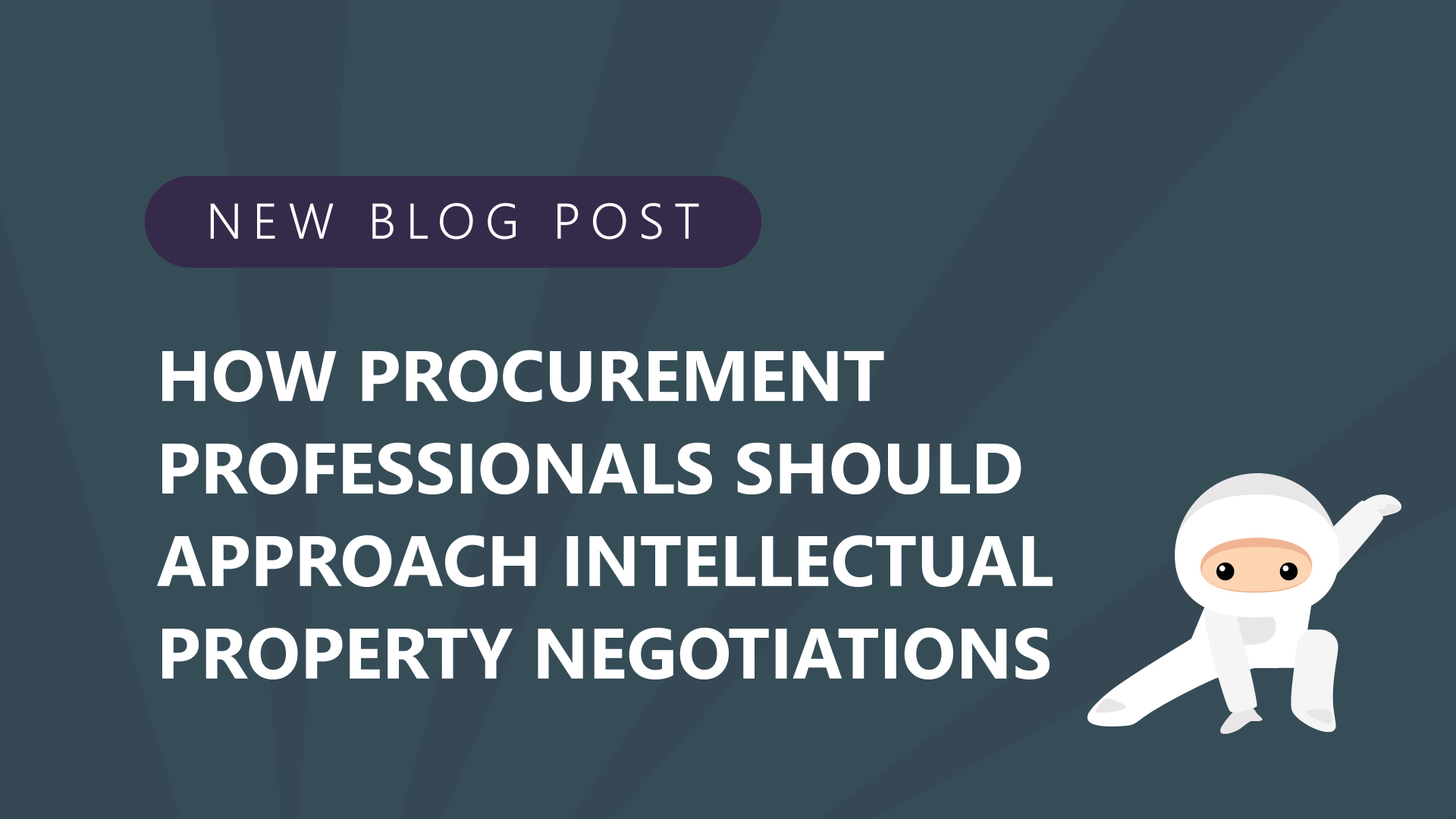Extreme boilerplate language in intellectual property clauses such as “Anything you enter the relationship with and create during the relationship is ours” can be concerning. It can raise red flags. And it makes intellectual property negotiations complicated.
Legal teams do this to anchor the counterparty for easier negotiations. Understandably, they want to maintain and control the intellectual property coming into and being developed during the engagement. But there are likely things you can learn over the course of the contract that can be applied to other businesses.
Procurement people want things developed for their business. So procurement doesn’t want anyone else to have the ability to use the knowledge for a competitor. That’s why you hired them, right? So the intellectual property negotiation begins from those two differing perspectives.
How to guide the negotiation conversation with a vendor
Lawrence likes to look at the background first. Why are they negotiating in the first place? What’s the unmet business need? What’s your role in solving that problem? How do you work together?
Build times in aerospace are long. Millions of parts must be integrated, and it’s very complex. If you’re asking someone to invent something for you, it’s a different kind of contract. They might be paid based on market share or speed-to-market.
If you start by focusing on the “why” and the type of relationship you want during the process, the explanation becomes easier. You might agree to co-invent something but allow the other party to sell it (while you get first right of refusal), and they’ll work out a plan to share the revenue.
If it’s dime-a-dozen commodity stuff, why would you give them any special concessions? If there’s no unique or special knowledge, it won’t add value. It’s about a fair split of the work and a fair split of the reward.
How contract professionals can help guide lawyers
Jeanette points out that contract professionals have to start by focusing on the business side of things, not the legal side. You’ll see templated legal language that contract professionals shouldn’t monkey with. Instead, they need to look at the business objective, business case, and what they want to do with it. Knowing this and sharing it with the lawyers helps them decide if the templated language is appropriate.
Standardized language is standard because it’s what someone thought at the time met the lowest common denominator of issues and problems after they attended a legal seminar. They push that out to contract professionals, who are never up-to-date on intellectual property law.
You must tailor your terms to meet the agreement you envision. It starts with strategy, the supplier’s role, and what reasonably protects the parties in a way that drives the right incentives.
Intellectual property negotiations: The complex question of ownership
What do you need to own? If Jeanette hires me to create a script, does she own the script? If she does own it, can she take it to a competitor? Can the competitor then make changes to the script to enhance it? The question of who owns what must be considered when creating and negotiating intellectual property clauses.
To hear the full discussion on negotiating intellectual property contracts, listen to episode #289 of the Negotiations Ninja podcast with Jeanette Nyden and Lawrence Kane.

